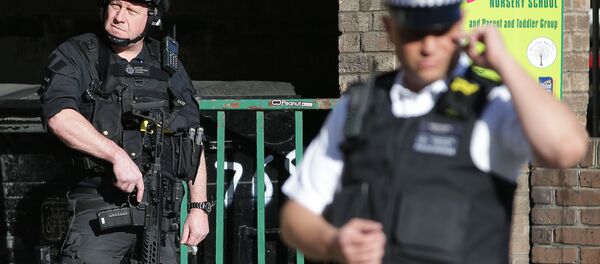A number of proposals are being examined by British Prime Minister Theresa May to provide jihadists returning from Syria to Britain with council homes, welfare benefits as well as help to find jobs in order to encourage them to renounce violence and minimize the risk of further terrorist attacks on UK streets.
"The government is committed to doing everything possible to protect our communities from the threat of terrorism. It is vital that we use all the means at our collective disposal to divert people away from terrorist-related activity and we are exploring the best ways of doing this with our partners. We are also reviewing our counter-terrorism strategy to make sure we respond to the evolving threat in the most effective way," a spokesman for the Home Office said October 29.
Professor Helen Fenwick, joint director of the University of Durham Human Rights Centre, believes the plan to provide council properties and assistance to Daesh fighters, fleeing back to the UK from Syria, could backfire by simply fueling anger against British Muslims.
"If the perception is that they are being allowed to jump housing queues etc., that will fuel anger against Muslims. It gives the impression of rewarding very serious wrongdoing. Also without —in many cases — ensuring they enter a deradicalization program (if they can be identified) by way of imposing Terrorism Prevention and Investigations Measures (TPIM), their disaffection from British society is likely to continue," Professor Fenwick told Sputnik.
Professor Fenwick believes that in some instances it appears to be too "deep-rooted" to be affected by giving them particular benefits.
"Some came from high income or fairly high income families — poverty was in general not the reason for leaving to join ISIS [Daesh]," Professor Fenwick added.
Risk of Further Terrorist Attacks
It is thought that around 425 fighters have already returned to the UK — one of the highest contingents of any country — igniting fears that it could potentially lead to further outbreaks of violence and terrorism in British towns and cities unless they are given hope for the future, according to British security forces.
The returning jihadists are one element, however, as there are around 20,000 former subjects of interest who have previously shown a capacity for extremism, but are not being investigated at the moment.
Mark Rowley, the UK's most senior police officer for counterterrorism, has already confirmed a significant proportion would face prosecution once these Daesh fighters are on British territory.
He warned that in some instances there may not be strong enough evidence, including social media propaganda, to allow successful legal action.
Such cases would be dealt with "in the community" by referrals to deradicalization programs or through conditions being placed on their movement and behavior, according to Mr. Rowley.
Despite the collapse of the so-called Daesh caliphate, the British authorities say many of the most dangerous Britons have not, so far, returned.
It is estimated that around 850 UK-linked individuals of "national security concern" made the journey to take part in the conflict in Syria.
Operatin Constrain and Social Readjustment
Operation Constrain was established after five terrorist attacks in Britain this year to overhaul the UK government's counterterrorism strategy and come up with new proposals.
One of the proposals, presently being considered by the British government, is providing mental health counseling to jihadists in the hope it will persuade them to reject violence and readjust to British society.
Professor Fenwick insists that even offering the fighters assistance to adjust back into British society will do little to minimize the risk of further trouble on British streets.
"I suggest that it will not alleviate the threat in the majority of cases, I also think it could fuel a right-wing movement against Muslims and possibly right-wing terrorist acts," Professor Fenwick said.
"The people involved came from a range of backgrounds. They are not united by a hatred of Britain due to poverty-based disaffection. The hatred is fueled by radicalization, sometimes via online anti-Western propaganda or anti-infidel propaganda, sometimes from members of Daesh themselves. That issue needs addressing, if they are allowed to return," Professor Fenwick told Sputnik.
Security services such as MI5 have the ability to investigate 3,000 individuals at any given time.
They are further supported by police and social workers who have access to its databases to assess what danger they pose, and what it would take to integrate them back into society.
Such help could include housing, getting education or finding work.




